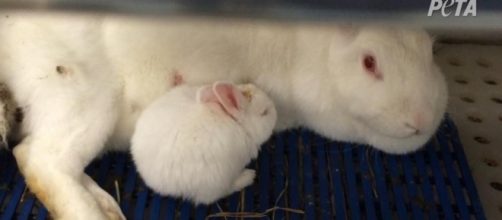PETA filed complaints against the University of Pittsburgh research lab after they received a clearance from the United States Department of Agriculture (USDA). They state that the Pitt’s Rangos Research Lab facility in Lawrenceville, Pennsylvania mistreats the animals used in their studies.
PETA’s report to the USDA Animal Welfare Operations regarding abuse allegations
According to PETA and the CBS Pittsburgh report, medical research at the Pitt’s Rangos Research Lab facility includes medical exams on animals like rats, monkeys, mice and rabbits.
PETA sent a lengthy report to the USDA Animal Welfare Operations, stating that the Pitt facility was in violation of the Animal Welfare Act and other regulations regarding animal experimentation practices.
Allegations by PETA and CBS Pittsburgh Investigators
According to PETA spokesperson Alka Chandna, the Pitt facility does not provide adequate veterinary care for the animals. In a Skype interview with Investigator Andy Sheehan for CBS Pittsburgh, Chandna reported that the animals used in medical research were allowed to suffer in distress and extreme pain without being humanely euthanized when they were no longer of use for experiments. The complaints and allegations stem from a PETA undercover video and investigation, which came after employees who worked at the facility for six months claimed to witness this animal abuse.
The video depicts monkeys confined in tight quarters, a rabbit appears with an open wound that was bound with wires for several weeks, and another monkey which received a shot without veterinary attention. The USDA and PETA dispute any violations and the use of animals for scientific and medical testing. PETA is urging the federal government to cease any funding to the Pitt’s labs.
After all allegations, the USDA conducted an unannounced inspection for four days at the Pitt medical research labs to document the treatment of the five species of monkeys while interviewing employees, veterinarians, and other researchers.
Pitt made a statement to CBS Pittsburgh, claiming that they were in full compliance with the USDA and the Animal Welfare Act, and that they are committed to high standards for medical breakthroughs. They feel that they remain committed to the humane treatment and care of all animals in the context of advanced medicine and science. The investigation is ongoing.

